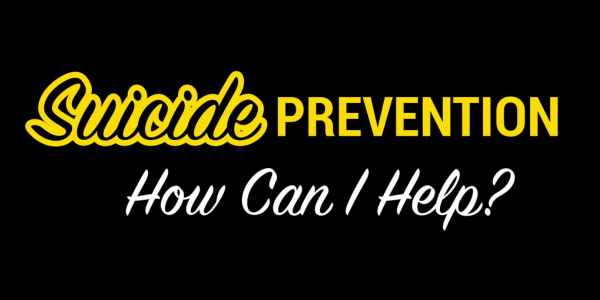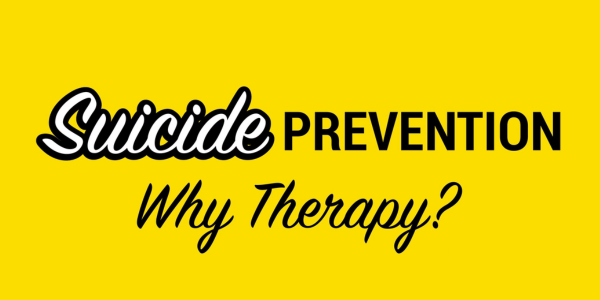Let's talk about Suicide
Why do people talk about committing suicide?
Sometimes problems can feel overwhelming. Some people think about suicide, but do not plan or act on it. For others, however, the thought of suicide might begin to seem like a real alternative to a problem or situation that appears hopeless. When people feel this bad, it is difficult to think about other choices or other ways to solve problems.
Each individual is unique; there is no single reason as to why someone thinks about or commits suicide. However, there are several factors that may contribute to someone having suicidal thoughts.
- Experiencing a major life transition, such as the loss of a loved one, breaking up with a boyfriend/girlfriend, moving to a new place, or failing an exam or course, may cause someone to feel unloved, depressed, isolated and lonely.
- Feelings of hopelessness and helplessness. Problems seem too much and no matter what is done, nothing appears to be getting better and no one seems to care or help.
- Developing negative feelings about oneself. Someone who is suicidal may experience feelings of worthlessness and of being a failure. He or she may experience academic and or social problems at university.
- Wanting to end unbearable emotional pain or problems that are too overwhelming.
- Alcohol and substance abuse can cause someone to lose self-control and engage in impulsive suicidal behaviours.
- Depression is the leading cause of suicide. Depression can affect thinking so that it becomes hard to think of other ways out of a situation. People feel hopeless, helpless and see no reason to live.
- Unresolved anger. Sometimes suicide may be linked to unexpressed anger. For some people it is hard to acknowledge their anger.
Warning signs of suicide:
You may have heard that people who talk about suicide won’t actually go through with it. However, people who commit suicide often give some warning of their intentions to take their life. The majority of people who attempt suicide say or do something to express their intention before they act. This means all suicide threats should be taken seriously. You can do something to help a friend or a family member who is thinking about taking their life.
Warning signs to look out for:
- Talking or joking about suicide. Talking about dying, suicide or saying things like “Nothing matters”, “I wish I was dead” or “I won’t be around for long”.
- Depression. Feeling hopeless, losing interest in doing anything, and withdrawing from family and friends.
- Preparing for death. Giving away favourite things and saying goodbye.
- Self-criticism. Saying things like “I can do anything right” and “I am pathetic and useless”.
- Changes in mood. Becoming negative, aggressive or irritable and not wanting to go out or see friends, or do anything.
- Loss of interest in appearance and drop in hygiene. Not getting dressed, washing and bathing and not caring about what one looks like.
- Risk-taking behaviour. Doing risky, dangerous things like drinking and driving, having unprotected sex or taking drugs. Excessive feelings of guilt, self-blame, failure or shame.
- Writing poems, essays, text messages or painting images of death.
- A history of previous suicide attempts.
IT’S IMPORTANT TO NOTE THAT SOME PEOPLE COMMIT SUICIDE WITHOUT SHOWING ANY WARNING SIGNS!
Helping a friend of family member who is having suicidal thoughts
Talking:
If you know of someone who is talking about suicide or showing other warning signs, don’t wait to see if he or she starts to feel better – TALK ABOUT IT. Asking someone if he or she is having thoughts about suicide can be difficult. You can try saying:
“I’ve noticed that you’ve been talking a lot about wanting to be dead. Have you been having thoughts about hurting or killing yourself?”
Talking openly and matter-of-factly about suicide can help in many ways.
- The person may feel less alone, less isolated and more cared for and understood.
- The person may see another solution.
- You can get help for the person.
Listening:
- Allow expressions of feelings. Accept the feelings.
- Listen without judgement. Don’t debate whether suicide is right or wrong, or whether their feelings are good or bad.
- Don’t lecture on the value of life. For the suicidal person their perception of life may be that it is ‘worthless’.
- Offer reassurance that you are there and that you care. Do not offer unrealistic assurance.
- Stay close and don’t leave them alone.
Taking action:
- Get involved, become available and show interest and support.
- Don’t be sworn to secrecy as you may need to involve others. You may have to alert a professional, someone in authority or a family member.
- If possible, get family and friends involved. Have them remove suicidal means, such as pills, ropes, knives or guns.
What to do if you are having suicidal thoughts:
Suicidal feelings and thoughts are real and not a sign of weakness. Many people feel the same way during tough times in life so don’t be afraid to talk about how you feel.
Things you can do if you’re thinking of suicide:
- Tell someone. Tell a friend or family member or call a Counselling Helpline (see suggested places to get help below)
- Talk to a professional. GPs, psychologists, psychiatrists, social workers and other health professionals are trained to deal with issues relating to suicide, mental illness and wellbeing.
- Make sure you are not alone. If you are feeling suicidal or want to end your life, it’s important that you keep yourself safe.
- Avoid using alcohol or drugs. They can make you feel worse. They can also impair you decision-making skills and you might do something you normally wouldn’t do.
- Try to spend time with family and friends, even though you probably want to be alone. Withdrawing and isolating is not a good idea.
More info:
If you’re interested in reading more on this topic, take a look at:
Wits 足球竞彩app排名 Crisis Line 0800 111 331 (24/7/365)




